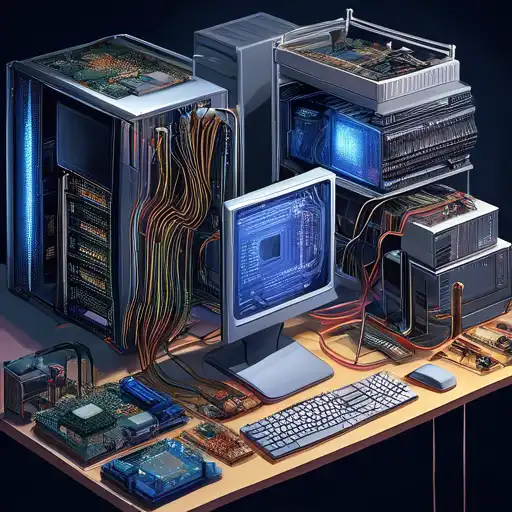Introduction to Computer Hardware Innovations
In the ever-evolving world of technology, computer hardware innovations play a pivotal role in shaping the future. From faster processors to more efficient cooling systems, these advancements are not just about speed but also about sustainability and user experience. In this article, we delve into the top 5 groundbreaking computer hardware innovations you should know about.
1. Quantum Computing Processors
Quantum computing represents a leap forward in processing power. Unlike traditional computers that use bits, quantum computers use qubits, allowing them to solve complex problems in seconds that would take years for conventional computers. Companies like IBM and Google are at the forefront of this innovation, pushing the boundaries of what's possible.
2. Solid-State Drives (SSDs) with Higher Capacities
The shift from Hard Disk Drives (HDDs) to Solid-State Drives (SSDs) has been a game-changer for storage technology. With higher capacities and faster read/write speeds, SSDs are making computers more efficient and reliable. Innovations in NAND flash memory are enabling SSDs to offer terabytes of storage in compact forms.
3. Advanced Cooling Systems
As processors become more powerful, managing heat becomes a critical challenge. Advanced cooling systems, including liquid cooling and phase-change materials, are ensuring that devices remain cool under heavy loads, enhancing performance and longevity.
4. Graphene-Based Components
Graphene, a single layer of carbon atoms, is being explored for its potential in computer hardware. Its exceptional conductivity and strength could lead to thinner, more efficient, and faster electronic components, revolutionizing how devices are built.
5. AI-Optimized Hardware
Artificial Intelligence (AI) is not just software; it's also driving hardware innovations. AI-optimized chips and processors are designed to handle AI tasks more efficiently, enabling smarter and more responsive devices. This is particularly relevant in the fields of machine learning and data analysis.
Conclusion
The landscape of computer hardware is constantly changing, with innovations that promise to redefine our technological capabilities. From quantum computing to AI-optimized hardware, these advancements are setting the stage for a future where computers are faster, more efficient, and more integrated into our daily lives. Staying informed about these developments is crucial for anyone interested in the future of technology.
